It’s a fact that some fruits taste better at a specific time of the year. Muskmelons (Cucumis melo), also known as kharbuja, rockmelons or sweet melons, are one such example. Because these fruits are exceptionally sweet, they’re widely consumed during hot summer days. Muskmelons come in a wide variety of shapes, sizes, flesh colors and flavors.
Apart from quenching your taste buds, muskmelons have health benefits that can improve your overall health. Keep reading to find out more about muskmelons’ capabilities and uses, as well as the nutrients your body can reap from these fruits.
What Are Muskmelons?
In the U.S., muskmelons are often called cantaloupes, with these names being used interchangeably. In fact, what are widely known as cantaloupes in the U.S. are actually muskmelons. Although this name-switching is acceptable, there are notable differences between cantaloupes and muskmelons. This table will show you how to differentiate muskmelons versus cantaloupes:
| Muskmelons | Cantaloupes |
| · Member of the reticulatus group of melon and the Cucurbitaceae family that includes watermelons
· Round fruit with a netlike, ribbed rind that’s developed and orderly · Mild-to-moderate ribbing · Has sweet orange flesh |
· Belongs to the cantalupensis group
· Round fruit that has a warty and rough rind that lacks an extensive and orderly netting · Heavier and deeply grooved ribs · Has orange or green flesh |
Apart from the fruit, muskmelon seeds, which are often discarded, actually have health benefits, too. These seeds are a good source of vitamins, minerals, protein and omega-3 fatty acids that can help with improving cardiovascular health, eliminating intestinal worms, losing weight and enhancing healthy hair and nail growth.
Known Health Benefits of Muskmelons
Just as muskmelons are big in size, they are also big on nutrients and health boosts. You can find vitamins A, B9 and C, and minerals like potassium, fiber and beta-carotene in muskmelons that can all improve your well-being — more on these later.
Although muskmelons are sweet, you’d be surprised to know that they are low in sugar, resulting in a lower calorie content. Plus, these fruits are high in water content, and when eaten as snacks, can hydrate you, satisfy hunger cravings and deliver a natural energy boost. Even better, muskmelons were proven to have these benefits:
| Boosts immune system: Vitamin C stimulates the body’s white blood cells. | Improves vision: Studies have shown that consuming vitamin A and beta-carotene rich foods like muskmelons regularly can reduce your cataract risk. |
| Improves heart health: Potassium assists with controlling blood pressure, preventing hypertension, lowering heart disease and stroke risk and regulating the correct balance of electrolytes within the body.
Meanwhile, a compound called adenosine has blood thinning abilities that can help prevent blood clotting in the cardiovascular system. |
Soothe nervous system and help with insomnia: Muskmelons’ muscle-relaxing properties may be able to soothe the nervous system and help you deal with sleeping disorders. |
| Treat menstrual problems: Vitamin C aids with regulating menstrual flow and consequently relieving cramps. The fruits’ anti-coagulant properties relax muscles and dissolve blood clots. | May help slow down the signs of aging: Muskmelons’ antioxidant content helps combat free radicals in the body that may trigger skin damage and premature aging. |
| Rejuvenate skin: The collagen and the protein compounds in muskmelons help with cell regrowth, giving your skin a healthy glow. | Fight hair loss: A form of vitamin B called insonitol that’s required for hair growth is found in muskmelons. |
| Help promote better digestive health: Eating muskmelons was shown to improve digestive health and assist with providing relief against indigestion and other digestive conditions.
People who are constipated can also greatly benefit from muskmelons’ high fiber content. |
Improve a woman’s health during pregnancy: Muskmelons can positively impact a woman’s health during pregnancy by inhibiting water retention and helping remove excess sodium from the body. |
| Possess mild antidepressant properties: Muskmelons can assist with alleviating mild cases of anxiety, depression and stress. | May help individuals quit smoking: Eating muskmelons can help revitalize lungs and assist with recovery from nicotine withdrawal. |
Common Uses of Muskmelons
Muskmelons are said to be native to Persia or present-day Iran. More evidence suggests muskmelons’ use in different civilizations, such as an Egyptian illustration dating back to 2,400 B.C., which is said to be the oldest visual record of these fruits, and historical records that highlighted how the Greeks already grew muskmelons as early as 300 B.C.
Afterwards, muskmelon cultivation began to spread rapidly westward. By the late 15th century, it was said that Christopher Columbus already had muskmelon seeds with him on one of his voyages to the New World.
Muskmelons are usually eaten fresh, as a snack or dessert. Muskmelons may also be prepared as tea by using the fruits’ root, and this drink can assist in preventing nausea and helping reduce vomiting sensation. This tea is also a known diuretic.
Muskmelon rind can be used to help alleviate toothaches. The fruit’s skin is peeled and added to boiling water until it’s cooked. After the mixture has cooled, it is strained and used as a mouth rinse.
Different cosmetic purposes are attributed to muskmelons. For instance, some muskmelon varieties are solely grown for their fragrance. Mashed muskmelons (with the pulp) may be massaged onto hair after shampooing, since the fruit works as a natural conditioner. Drinking melon juice was also revealed to help people suffering from skin problems like eczema, and may be applied topically for these conditions or even as a first aid for burns or abrasions.
In some parts of the world, muskmelons are sometimes dried and kept as melon leather. Meanwhile, other varieties are cooked just like vegetables and some are grown for their seeds, which are then made into melon oil.
Muskmelon Recipes You Can Try
When buying muskmelons, make sure the fruit feels heavy for its size and makes a dull and deep sound when tapped. The stem end should give slightly when you press your thumb end, while the blossom end (opposite the stem end) must have a pleasant aroma that’s not too overpowering. If it’s overpowering, the fruit is already overripe.
Muskmelons must be stored in the refrigerator’s crisper bin until you are ready to eat them. Take note that muskmelons will only stay fresh for around three to four days once they’re ripe. You can leave muskmelons out on the counter if they’re unripe.
There are many recipes that utilize the natural sweetness of muskmelons. An example is this Muskmelon Juice Recipe that’s perfect for warm and sunny days:
Ideally, if you’re eating the muskmelon fruit, eat it alone, since this can lead to problems and reactions when combined with other foods. As the motto goes, “Eat melon alone, or leave it alone, or your stomach will moan.”
Plus, although muskmelons have a low fructose content, this doesn’t mean that you can eat as much of it as you like. Eat muskmelons in moderation to maintain optimal fructose levels, especially if you consume fructose from other food sources.
Make sure to purchase organic muskmelons from a local farmer. Buying organic fruits will not only help lower your risk of pesticide exposure, but also reduce the probability of harmful contaminations linked to muskmelons.
Whole muskmelons were responsible for the largest listeriosis outbreak in U.S. history, causing 147 illnesses, 33 deaths and a miscarriage. It was also reported that muskmelons were involved in salmonella outbreaks and triggered around 36 food-borne contaminant outbreaks since 1990. Muskmelons are also highly susceptible to bacteria contamination, with the microbes making their way to the fruits through these pathways:
- Muskmelons’ rough outer skin traps bacteria that can penetrate the inner flesh. Bacteria can also grow on cantaloupes after harvesting, unlike other fruits and vegetables.
- Contaminants in irrigation water can seep through the fruits because they sit right on the ground in the field.
Even worse, five of the longest-lasting chemicals often contaminate muskmelons. An example is dieldrin, a highly toxic and carcinogenic insecticide. Even though it was banned in 1974, traces of it can affect the plant by getting taken up on muskmelon’s roots. Because of these factors, it’s important that you take the following steps when buying and preparing muskmelons:
| Refrain from buying bruised or damaged muskmelons. | Refrigerate cut muskmelons within two hours. |
| Wash the fruit with water using a gentle scrub brush prior to preparation. | Cut the stem end, since research suggests this area is most prone to bacterial contamination. |
| Wash cutting boards, knives and utensils thoroughly after use. | Store the fruit for less than three days after cutting to avoid the risk of contamination because of Salmonella or other bacterial pathogens. |
Muskmelon Nutrition Facts
In terms of nutrition, muskmelons stack up well when compared to other fruits and vegetables. A 100-gram serving delivers only 34 calories, but with a whopping 68 and 61 percent of both vitamin A and vitamin C. Take a look at this table to check for other nutrients you can get from these sweet fruits:
Muskmelon Nutrition FactsServing Size: 177 grams |
||
| Amt. Per Serving |
% Daily Value* |
|
| Calories | 60 | |
| Calories from Fat | ||
| Total Fat | 0 g | 0% |
| Saturated Fat | 0 g | 0% |
| Trans Fat | ||
| Cholesterol | 0 mg | 0% |
| Sodium | 28 mg | |
| Total Carbohydrates | ||
| Dietary Fiber | 2 g | |
| Sugar | 14 g | |
| Protein | 1 g | |
| Vitamin A120% | Vitamin C | 108% |
| Calcium2% | Iron | 2% |
*Percent Daily Values are based on a 2,000 calorie diet. Your daily values may be higher or lower depending on your calorie needs.

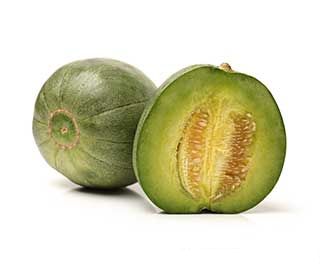
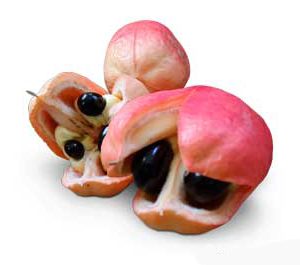
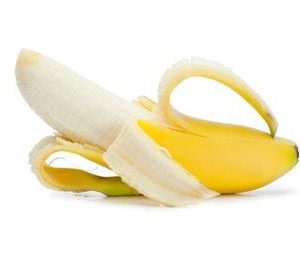
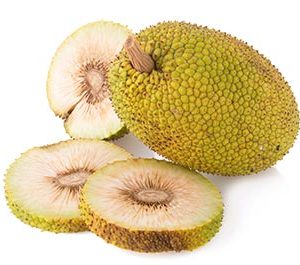
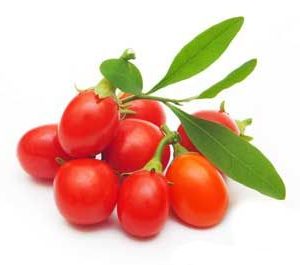
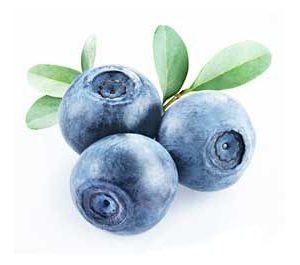
Reviews
There are no reviews yet.